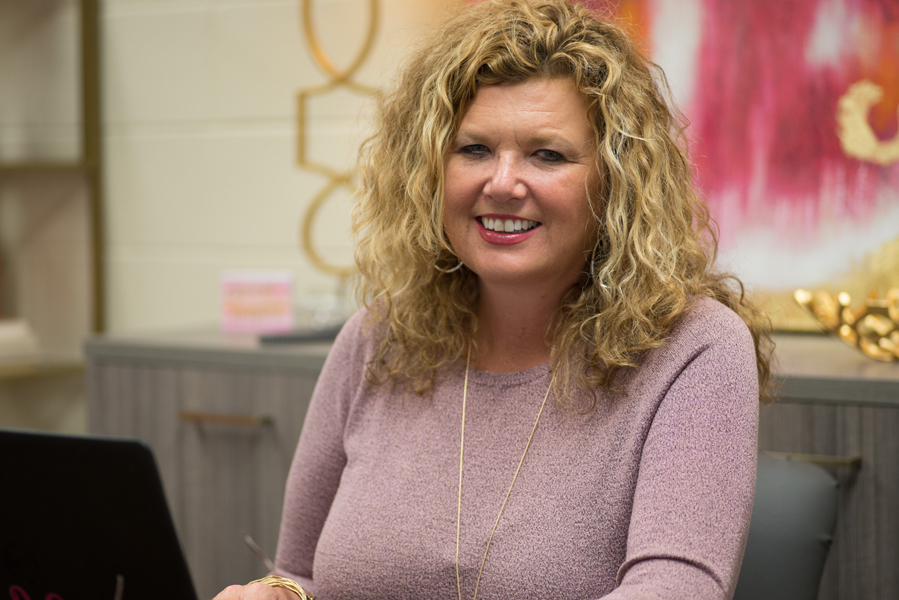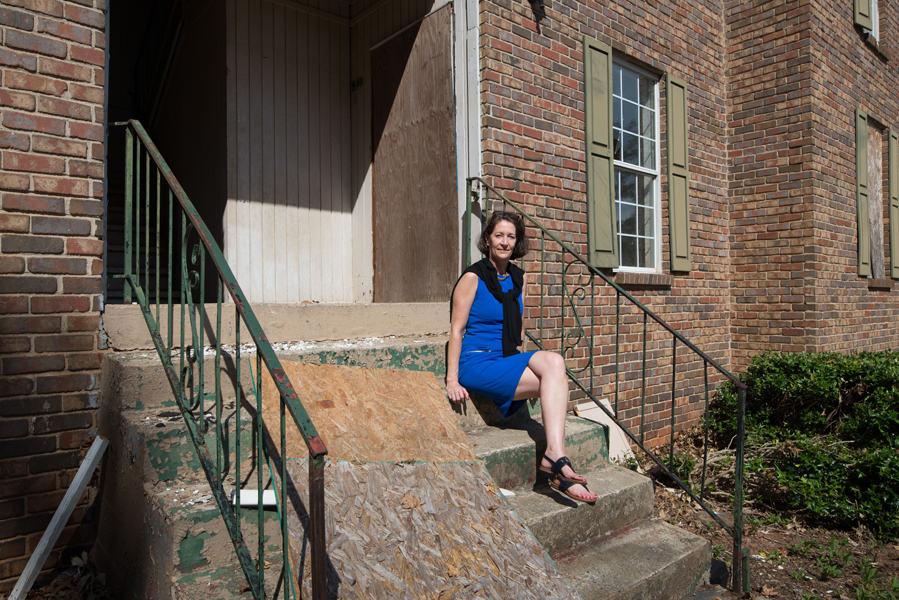
Photos by Ali Sardar
.
EDITOR’S NOTE: This week we will be publishing a series of articles about after-school programs in the Atlanta area set up in apartment complexes — not by educators — but by real estate entrepreneur Marjy Stagmeier. Read on for how well it has worked and programs in other parts of the U.S.
Back in 2006, the bus carrying children home from Brumby Elementary School in Marietta, Ga., near Atlanta, refused to stop at Madison Hills apartments.
The rundown complex, a site of drug deals and crime, was too unsafe.
But 200 children lived there — one-third of Brumby Elementary’s student population.
That year, something happened at Madison Hills. The complex was sold and a new owner, Marjy Stagmeier, managing partner of the TransInvest Group, visited the school and vowed to help turn it around.
She didn’t contribute funding to the school or support any new educational philosophy or program.
Related stories:
After-school Teacher: ‘I Want to Help People Find Wholeness’
Public Housing Increasingly Place for After-school Programs
After-school Programs in Housing Complexes Less Visible, Face Challenges
Complex Tests Whether Stable Rent, After-School and Health Programs Can Change a Struggling School
She stabilized the rent at Madison Hills, cleaned mold out of 200 of the 447 units, repaired the plumbing and added new security. And her company started a free after-school program for children of residents.
Six years later, all 90 of the children in the after-school program passed the district’s competency tests. And Brumby left the state’s failing school list, becoming instead a Title I school of distinction.
Stagmeier’s changes went a long way toward shifting the playing field for the low-income children who lived there.
Now she’s developed a nonprofit model for other developers. It’s being tested in two other apartment complexes — with the goal of turning around additional schools in Atlanta.
“If you have a blighted apartment community, there’s a 100 percent chance you have a failing school,” Stagmeier told Education Dive. She became convinced that changes at apartment complexes are the key to reducing student turnover — and the key to school reform.
Research shows that after-school programs have a positive impact on children’s school experience. Kids in after-school programs are more likely to be engaged in school, have better attendance and be involved in fewer disciplinary incidents, based on a number of studies. The 2006 Promising Afterschool Programs study showed that regular attendance at a high-quality after-school program had a marked effect on kids’ math scores.
And research reviewed by Chalkbeat shows that specific efforts to help families economically help children do better in school.
Her experience at Madison Hills has shaped a reform effort.

Brumby Elementary School Principal Amanda Richie told landlord Marjy Stagmeier how she could help the school: Start an after-school program at Madison Hills apartments.
Amanda Richie, principal of Brumby Elementary, remembers the problems at Madison Hills. Set on a ridge along Interstate 75 north of Atlanta, it’s among numerous 1970s-era apartment complexes in the area. Originally built for a population of single adults, these complexes now house entire families.
“It was a rough place,” Richie said of Madison Hills. Police had targeted drug dealers and prostitution rings there. A series of fires had burned out one section of the complex.
It had a high renter turnover.
Landlords in the area would advertise $99 move-in specials, attract tenants and then lose them as the rent jumped, Richie said.
A thwarted landlord
Stagmeier, who partnered to start TI Asset Management in 1995 and is a managing partner in TriStar Real Estate Investments, was no stranger to buying and managing property. She worked her way up in the business from market researcher to mortgage banker to financial analyst to handling millions of dollars in property investment portfolios. Along the way, she wrote a book on real estate investment, “Real Estate Asset Management: Executive Strategies in Profit Making.”
But when she bought Madison Hills in 2006, Stagmeier was surprised and offended that Cobb County wouldn’t issue her a permit to renovate.
She had already developed a model for running a low-income apartment complex. It involved keeping the rent stable to reduce turnover.
Unbeknownst to Stagmeier, Cobb County had decided to close down the complex.
Officials told her the complex was having a harmful effect on Brumby Elementary.
“I went home and thought: ‘I’m causing a school to fail?’” Stagmeier recalled.

Marjy Stagmeier at Summerdale Commons in Atlanta.
So she marched over to the school.
“She just came to introduce herself,” Richie recalled.
Richie told her that the high turnover at Madison Hills was the problem.
Stagmeier wanted to know what she, as a landlord, could do to help the school.
Start an after-school program at the complex, Richie told her. With parents not at home in the afternoon children were roaming freely, failing to do homework and getting into trouble, Richie said.
Apartments impact schools
Stagmeier agreed. She was already working on safety issues at the complex. She hired Marietta police officers as security guards. She also worked with police to round up residents who had outstanding warrants, ultimately arresting 10 percent of residents.
And she began making repairs to the apartments, although she was not able to renovate.
She hired Kristin Hemingway, a lunchroom monitor at the school, to run the after-school program.
Hemingway moved into Madison Hills and took part of her pay in rent. She provided structure for the kids, Richie said. “She would meet them at the bus every day.”
Hemingway also became a point person that the school could communicate with.
“We would talk to Ms. Kristin and we would talk to the mothers,” Richie said.
Hemingway saw parents get to know each other and begin to support each other, picking up each other’s children if a parent was delayed coming home.
“Kids didn’t have to go home by themselves,” Hemingway said.
The school provided materials and tutors for the after-school program. Richie began to see results.
“There were no bus issues, no fights at the bus stop,” she said. “Kids would do their homework.” Computers were available in the after-school program.
She began to see a rise in test scores.
“We made good growth for our kids,” Richie said.

In 2006, 200 students — one-third of the school population — lived in the large Madison Hills apartment complex.
With stable rent, safer surroundings, a landlord who repaired things, an after-school program and a stronger support network among parents, the turnover of families decreased.
The greater stability had a major impact on student transiency, Richie said.
The percentage of students who left Brumby Elementary during the school year had been as high as 72 percent, Richie said. It improved considerably.
For Stagmeier, the experience at Madison Hills was a revelation. She saw how a landlord can affect a school. She vowed to take her apartment management model to other complexes to raise the performance of other schools.
But can the actions of a private landlord, however well-intentioned, spearhead a school reform movement?
The limits of private ownership
Community organizer Jesse Myerson has his doubts. Myerson worked most recently with Hoosier Action, an advocacy group for Indiana working families, and he has written about the need for other forms of rental housing ownership, including community land trusts and nonprofit or publicly funded models.
In the long run, Myerson said, tenants can’t fully trust that a private landlord will sustain services or even keep a complex comfortable and livable. At some point those efforts could come into conflict with the owner’s interest in growing profits, he said.
It costs money to provide services, said Deirdre Oakley, professor of sociology and affiliated faculty member at the Urban Studies Institute of Georgia State University.
“If you stabilize people in housing you have a reliable revenue stream,” she said. “After-school programs can help give residents more stability and this might benefit the profit margin. But can it be sustainable over time?”
Real estate is not static, she said.
“One of the threats is that if property values go up, private investors might be in a position where they could make a lot of money if they sold,” she said.
Stagmeier’s experience bears out the pressure to sell.
The end of Madison Hills
In 2012, her investors required that Madison Hills be sold. Under new ownership — and the new name Stratford Ridge — the complex lost its after-school program and security guards. Stagmeier and Hemingway lost access to the families and children who’d been involved in the after-school program. The playground eventually became a dog park.
Parents began moving out, Richie said. They didn’t have anywhere for their children to be after school, she said.
“We just saw things decline,” she said. “We began to see student behavior changing.”
Communication between the school and the apartment complex management declined, she said. Richie began to hear about crime again at Madison Hills, she said.
In Georgia, school assessment includes assigning letter grades to schools each year based on an index. From a grade B in 2013, Brumby fell to a D on the Georgia School Report Card after 2013 and has remained there since.
Undaunted, Stagmeier began experimenting with another complex TriStar owns. She formed a nonprofit, Star-C, to help fund an after-school program and other tenant services there.
Star-C also aims to provide these services to other low-income apartment complexes.
This fall, the nonprofit inked an agreement with Stratford Ridge (formerly Madison Hills) to bring back the after-school program. Stagmeier is pushing ahead with her housing-based education reform movement.



























